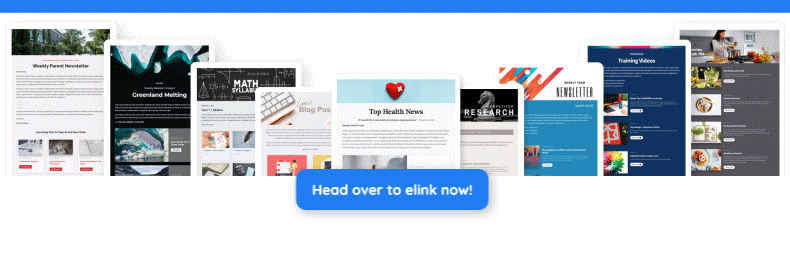People are the essence of an organization and its marketing. Think about it – behind every purchase, every brand loyalty, and every positive review, is a person driven by emotions, desires, and the need for meaningful connections.
In today’s hyper-connected world, where consumers have an endless number of choices and information at their fingertips, traditional marketing tactics such as bombarding people with ads are not enough.
The key lies in forging genuine, long-lasting relationships with individuals. This is where relationship marketing steps in. So, what exactly is it? It’s more than just a buzzword or a trend, it’s a philosophy that reshapes businesses’ operations.
Relationship marketing goes beyond one-time transactions, focusing on building trust, loyalty, and emotional bonds with customers. It’s about understanding their needs, anticipating their desires, and becoming their go-to source for everything related to your industry.
If you’re looking to learn the ABC’s of relationship marketing, then you’ve come to the right place. In this blog, we will cover everything from meaning to best practices to master the art of relationship marketing! Let’s dive right in, shall we?
What is Relationship Marketing?
Relationship marketing is a strategy focused on building and maintaining long-term customer relationships. It is based on the belief that establishing strong customer connections leads to increased customer loyalty, repeat purchases, and positive word-of-mouth referrals.
Relationship marketing goes beyond the transactional nature of traditional marketing approaches and emphasizes ongoing engagement and personalized interactions.
Relationship marketing aims to foster customer loyalty and create mutually beneficial relationships between the business and its customers. It aims to create a strong emotional bond with customers, making them feel valued and understood.
In short, relationship marketing is all about building strong and personalized connections with customers. Instead of focusing on short-term sales, it aims to create loyal customers and long-term relationships by fostering engagement and retention.
The 5 Levels of Relationship Marketing
1. Basic Marketing
Basic marketing level focuses on transactional interactions between the business and the customer. The primary objective is to sell products or services and generate revenue. The relationship is primarily short-term and based on one-time transactions.
2. Reactive Marketing
At the reactive marketing level, the business pays attention to customer satisfaction and responds to customer inquiries or complaints. The focus is on resolving customer issues and ensuring a positive experience. However, the relationship is still transactional and lacks proactivity.
3. Accountable Marketing
Accountable level involves taking responsibility for the customer’s overall experience and outcomes. The business actively tracks and measures customer satisfaction seeks feedback, and takes steps to address customer needs and preferences. The focus is on building trust and accountability, aiming for customer retention.
4. Proactive Marketing
At the proactive marketing level, businesses go beyond mere responsiveness and take a proactive approach to anticipate customer needs and preferences. They use customer data and insights to personalize marketing efforts, tailor offers, and deliver targeted solutions. The goal is to exceed customer expectations and build deeper connections.
5. Partnership Marketing
Partnership marketing level of relationship marketing involves the creation of strategic partnerships with customers. The business and the customer collaborate closely to achieve mutual goals and shared success. This level of relationship marketing often involves co-creation, joint innovation, and long-term commitment.
These five levels represent a progression from transactional marketing to relationship-focused approaches, with an increasing emphasis on customer satisfaction, proactivity, personalization, and collaboration. Now let’s go over the benefits of relationship marketing!
The Benefits of Relationship Marketing
1. Increased Customer Loyalty
By building strong relationships with customers, businesses can foster loyalty. Loyal customers are likelier to continue purchasing from a brand and are less likely to switch to competitors, leading to higher customer retention rates.
2. Repeat Business and Long-Term Business Growth
Relationship marketing focuses on creating long-term relationships rather than one-time transactions. This approach encourages repeat business from satisfied customers. This, in turn, helps in increasing sales and revenue over time. Businesses can establish a solid foundation for sustainable growth and profitability by prioritizing customer retention and satisfaction.
3. Enhanced Customer Satisfaction
Building customer relationships allows businesses better to understand their needs, preferences, and expectations. By catering to these factors, businesses can provide personalized and tailored experiences that result in higher customer satisfaction.
4. Positive Word-of-Mouth Referrals and Brand Advocacy
Satisfied customers with strong relationships with a brand are more likely to recommend it to others through positive word-of-mouth. They may share their positive experiences with friends, family, and colleagues, which can result in new customer acquisition through referrals. They can also become brand advocates who may actively promote your brand, write positive reviews, and share their experiences on social media, amplifying your brand’s reach and reputation.
5. Competitive Advantage
Relationship marketing can provide a competitive edge in crowded markets. Customers who have a strong connection with a brand are less likely to be swayed by competitors’ offers or lower prices. Strong customer relationships can differentiate a business and create a barrier to entry for competitors.
6. Cost Efficiency
Acquiring new customers can be costly while retaining existing customers through relationship marketing is often more cost-effective. By focusing on customer retention and fostering loyalty, you can reduce marketing expenses associated with acquiring new customers and instead allocate resources to nurturing existing relationships.
Examples of Relationship Marketing
1. Starbucks
Starbucks offers a loyalty program where customers can earn points for their purchases and receive rewards such as free drinks, personalized offers, and early access to new products. This program encourages customers to return and builds a sense of community and connection with the brand. What’s more? Many people often post pictures on Instagram with a Starbucks coffee cup in their hand. This makes customers feel familiar and connected to the brand.
2. Amazon
Amazon’s subscription-based service, Amazon Prime, goes beyond providing fast shipping. It offers additional benefits like exclusive discounts, access to streaming services, and Kindle e-books. By offering these perks, Amazon creates a sense of loyalty and encourages customers to continue using its services. You will also find that Amazon often creates personalized suggestions based on your previous interactions and engagements. This also establishes a sense of connection with the customers and makes them feel closer to the brand.
3. McDonald’s
McDonald’s tailors their menus to cater to their customers’ preferences in different countries. They understand that each region has unique tastes and dietary preferences, so they constantly adapt their offerings and messages accordingly. For instance, in India, McDonald’s offers a range of vegetarian options to cater to the large vegetarian population. Japan introduces seasonal items like the Teriyaki McBurger to appeal to local tastes. By customizing their menus, McDonald’s shows that they actively listen to their customers and strive to provide a personalized experience.
Implementing a relationship marketing plan involves creating strategies and tactics to build and maintain strong customer relationships. Let’s find out what they are!
How To Implement a Relationship Marketing Plan?
1. Define the Target Audience
Identify the specific group of customers you want to build relationships with. This could be based on demographics, psychographics, or other relevant criteria. Understanding your target audience will help you tailor your marketing efforts to their needs and preferences.
2. Understand Customer Needs and Preferences
Once you know who your target audience is, you need to understand what they’re looking for. Conduct market research and gather data to gain insights into your customers’ needs, preferences, and buying behavior. This information will enable you to personalize your marketing efforts and offer tailored solutions that resonate with your customers.
3. Develop Personalized Communication Channels
Utilize various channels such as email, social media, mobile apps, and personalized messaging to engage with your customers individually. This shows customers that you recognize their individuality, understand their preferences and are committed to meeting their needs. This strengthens the bond between your brand and customers, increasing loyalty and advocacy.
4. Offer Exceptional Customer Service
Deliver exceptional customer service by ensuring your staff is well-trained, knowledgeable, responsive, and empathetic. Make it simple for customers to reach out to you, promptly address their concerns, and strive to exceed their expectations whenever feasible. Exceptional customer service plays a crucial role in relationship marketing, as it demonstrates your commitment to customer satisfaction and helps foster strong, long-lasting relationships with your customers.
5. Reward Customer Loyalty
Implement loyalty programs and incentives that acknowledge and reward customer loyalty to encourage repeat business. These can involve exclusive discounts, freebies, or VIP benefits. Recognizing and appreciating customer loyalty shows that you value their ongoing support. This fosters a sense of reciprocity, where customers feel compelled to continue their patronage due to the appreciation and benefits they receive. Loyalty programs and incentives are effective tools for building strong relationships and promoting customer retention.
6. Foster Two-Way Communication
Promote and enable open communication with your customers and actively listen to their feedback, suggestions, and concerns. Engage in conversations on social media platforms, respond to reviews, and conduct surveys to gain insights and demonstrate a genuine interest in their opinions. This interaction allows you to gather valuable feedback and strengthens the bond between your brand and customers. By showing that you care about their thoughts and actively seek their input, you build trust, enhance customer satisfaction, and foster a deeper connection.
7. Personalize the Customer Experience
To align with the specific preferences of individual customers, customize or tailor your products, services, and marketing messages. Utilize data analytics to segment your customer base and offer targeted promotions and recommendations. By delivering personalized experiences, you showcase your understanding and appreciation of each customer as a distinct individual. This approach demonstrates that you value their unique needs and preferences, leading to increased customer satisfaction, loyalty, and a stronger connection between your brand and customers.
8. Continuously Monitor and Improve
Lastly, regularly assess the effectiveness of your relationship marketing efforts through metrics such as customer satisfaction, retention rates, and customer lifetime value. Use this data to identify areas for improvement and make necessary adjustments to your strategies. Relationship marketing is an ongoing process; staying attuned to customer needs and adapting accordingly is crucial.
By implementing these points effectively, you can cultivate strong relationships with your customers, foster loyalty, and create advocates who will promote your brand and contribute to long-term business success.
Wrap Up
Establishing relationships is crucial in business, and in today’s world, it has become even more critical with the advancement of marketing strategies.
So, to sum up, relationship marketing is a game-changer for businesses in today’s customer-centric landscape. This approach enhances customer satisfaction, builds trust, fosters loyalty, and drives advocacy.
In a world where customers have countless choices, relationship marketing becomes a competitive advantage that sets businesses apart. By building genuine relationships, businesses can create a loyal customer base that propels them toward long-term success and growth.
So, embrace the power of relationship marketing and watch your business thrive in the customer-centric era! Hope this blog helped! Good luck!
Further Reads:
Video Email Marketing: Engage Your Audience and Drive Conversions
Email Marketing Renaissance: 23 Trending Terms for Success in 2023
Get the Edge: Email Marketing Trends You Need to Know in 2023!
Customer Onboarding Emails:What Are They & How To Create Them?
Effective Marketing: Build A Business Strategy in 9 Simple Steps






